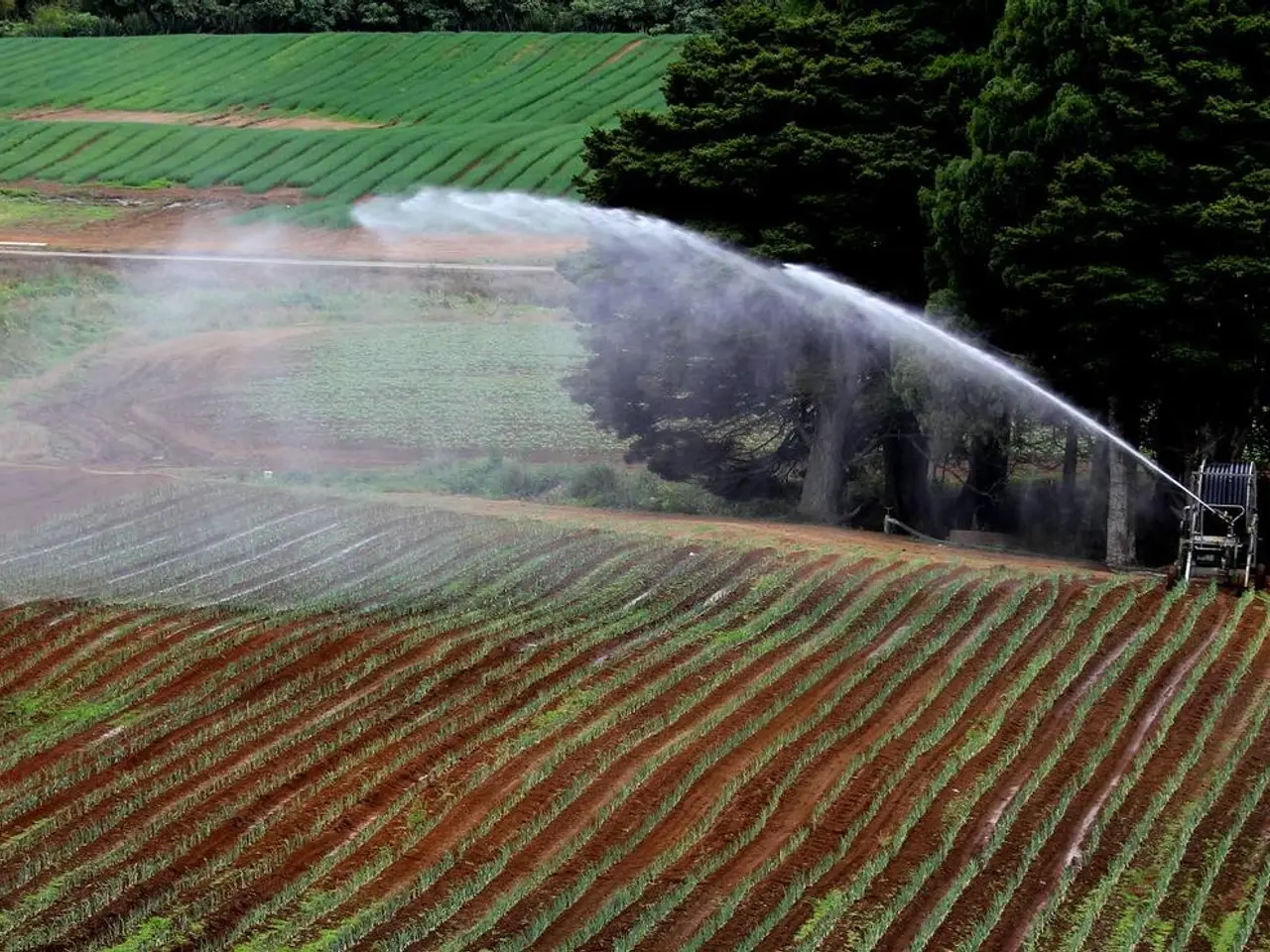The Advancement of Hydroponics Farming Signifies the Business Evolution in India's Agricultural Sector
India's agricultural landscape is witnessing a significant shift with the rapid growth of hydroponics farming. This innovative, soil-less farming approach is not only meeting the growing demand for fresh, high-quality vegetables but also addressing unique agricultural challenges faced by the country.
Hydroponics farming, which involves growing plants using a nutrient-rich water solution, is gaining popularity among entrepreneurs and farmers alike. Crops such as cabbage, spinach, herbs, and strawberries can be cultivated using this method. As the popularity of hydroponics grows, operators are offering training, equipment, and advisory services to help farmers transition to this modern farming technique.
Marketing efforts are crucial to educate people about the benefits of hydroponically grown food. Social media, relationships with local stores, and farmers' markets are being utilised to spread awareness. High-quality hydroponic products, such as leafy greens, herbs, and exotic vegetables, have export potential and can command high prices in international markets.
Collaborations between hydroponics farming businesses and agritech companies are leading to the implementation of smart solutions like IoT-based monitoring, automated nutrient systems, and climate management. These innovations are boosting productivity while attracting investors. Adopting hydroponics can help India take a significant step toward altering its agricultural environment while ensuring profitability and sustainability in the years ahead.
However, the industry still faces challenges. Limited availability and knowledge of advanced hydroponic techniques, a relatively small installation base, lack of access for growers to the latest global technologies and practices, and the need for organized efforts to disseminate knowledge and support growers are some of the obstacles. Events like Technology Vision 2030 and HortiConnect India 2025 have been organised to address these knowledge gaps.
Urban Farming Ventures in hydroponics can meet the growing demand for fresh, locally sourced food in cities, lowering transportation costs and carbon emissions. The choice of a hydroponic system depends on the farm's needs, whether it's a small vertical farm or a large industrial greenhouse. Inert materials like coconut coir, perlite, or clay pellets support the plants in hydroponic farming.
Training classes or expert consultations can provide knowledge about hydroponic systems and techniques. As India's hydroponics industry continues to grow, it represents the future of sustainable agriculture in the country.
- Embracing hydroponic farming can help India's agricultural landscape transition towards a revolutionary, sustainable-living approach.
- In the realm of home-and-garden activities, more entrepreneurs are adopting hydroponic farming, offering training and services to assist farmers in adopting this modern, business-ideal growing method.
- With the increasing popularity of hydroponically grown food, lifestyle changes are taking root, as these dietary choices have potential in international markets, commanding high prices due to their premium quality.
- Technology integration in hydroponics, such as IoT-based monitoring, automation, and climate management, is a significant step towards ensuring India's agricultural growth is both productive and sustainable.




